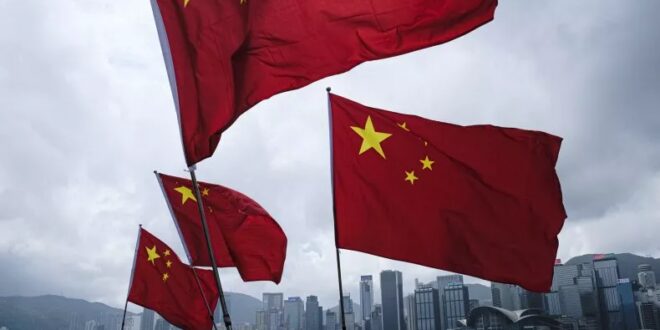U.S.-China competition for influence in the Indo-Pacific has been on full display as officials from both countries—including President Joe Biden and General Secretary Xi Jinping—attend the G20 in Southeast Asia. Having secured a third term, Xi’s desire to achieve the “great rejuvenation of the Chinese nation” will grow. The White House appears to believe China seeks to overturn the international order and that it would start with controlling the Indo-Pacific. This is misguided. U.S. policy should recognize that China is naturally constrained from dominating Asia.
Simply put, the Asian continent is too big for any single country—including China—to control. China’s geographic position prevents effective power projection. It is hemmed in on all sides. With mountains and deserts in the west, deserts and tundra to the north, and an ocean to the east, Beijing is unable to use the Washington-style hard power playbook to exert influence.
Moreover, the “stopping power of water” would prove a major hurdle to any attempted Chinese invasion of Asia’s island states—including U.S. territories, U.S. allies Japan and the Philippines, and Taiwan. Amphibious operations are extremely difficult. China has no recent experience sending massive numbers of troops across large bodies of water. A more advanced People’s Liberation Army is not guaranteed to succeed in an amphibious assault.
Not only is the geography challenging, but the great distances would also require long supply lines. These would be brittle and could easily collapse on their own or be compromised. Without a steady flow of supplies, Chinese military influence would be jeopardized.
Exclude geographic factors and the collective hard power of other countries in the region would still discourage China from attempting to dominate Asia and the Indo-Pacific. Collectively, the non-Chinese economies in Asia and Oceania equal $20 trillion GDP to China’s $17.7 trillion. This is a significant disadvantage for China. Add the economies of the Untied States, the United Kingdom, and France—all possessing territories in the region—and China is outmatched by more than $30 trillion.
Thanks to their economic weight, countries in Asia can also spend more on their defensive capabilities to make any attempted Chinese invasion a costly quagmire. Already, regional states outspend China. In 2021, China’s defense budget was just over $293 billion. The rest of the region spent over $325 billion on their defense. They can afford to increase military expenditures relative to China. Regional states will collectively have a higher defense spending ceiling, increasing the likelihood that Beijing will always spend less on its military. Throw in the United States, and China’s defense spending is highly unlikely to reach or exceed continental parity.
Furthermore, India, Japan, and Russia—countries with great power histories and goals—will be inclined to fight for their sovereignty. Historically, India has been as rich as—even richer than—China and just as powerful. Japan was one of the few Chinese tributary states to exceed Chinese power and lead Asia. Russia clings to its imperial past—even as it appears more distant than ever—and to great power status in Central Asia and the former Outer Manchuria. Each have their own ambitions—for India to secure its rise, for Japan to remain the Western bulwark in the region, and for Russia to prove its great power status—that would be diminished by Chinese domination. If Beijing wants to cow these powers, it cannot expect to do so without considerable cost.
China is unlikely to buck the historical trend and completely dominate its continent. Outside the United States, no one country has ever dominated an entire continent. While America is the most powerful state in the Western Hemisphere, it cannot entirely prevent regional countries from acting in their interests. For example, Brazil, Mexico, and Argentina have not joined Washington in imposing sanctions on Russia in response to the war in Ukraine. Chinese investments and trade flow into the region despite U.S. leadership. Although Washington may desire more power to shape political and economic outcomes in its backyard, the situation in the Western Hemisphere should allay fears of growing Chinese power in the Indo-Pacific and hypothetical control of Asia.
Geography, hard power, and historical-cultural factors prevent China from dominating Asia. If Beijing truly seeks to subdue the continent, it will not likely succeed and any attempt to do so would exact immense military, economic, and political costs. Washington’s China and greater Indo-Pacific policy should consider the limits on China’s ability to rule Asia and reflect a restrained and prudent strategy. This would be an efficient and effective way to accomplish U.S. national interests.
 Eurasia Press & News
Eurasia Press & News




